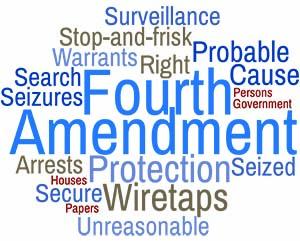Pretrial Suppression Motion

One of the most critical principles outlined in the United States Constitution is the idea that every person has certain rights that must be upheld and protected, even when that person is accused of or suspected of committing a crime. These protections benefit everyone, guilty and innocent alike, and one of the first things an experienced criminal defense attorney will do in preparing your case is determine whether any of your rights were violated in the course of the investigation conducted by law enforcement that led to your being charged with a crime. If any grounds exist on which to claim that your constitutional rights were violated, your attorney can rectify this by filing a pretrial suppression motion to exclude from consideration any evidence that law enforcement obtained by means of that violation.
There are a number of important constitutional rights to keep in mind during any interaction with law enforcement, but with respect to the collection of evidence, two of the most crucial are the Fourth Amendment’s protection against inappropriate searches and seizures, and the Fifth Amendment’s protection against being compelled or coerced into providing incriminating evidence against oneself. In many cases, the evidence being shielded by these rights may be highly persuasive of the accused’s guilt: a confession, or contraband items such as drugs or weapons. If law enforcement investigators acquire this evidence through the violation of the constitutional rights of the accused, his or her defense attorney can file a suppression motion to have that incriminating evidence excluded from the client’s trial.
In order to have legal grounds to assert one’s constitutional rights in this way, it is necessary not to have waived your rights during the police investigation. Unfortunately, many people are not aware of exactly what their rights do and don’t protect, and frequently a person under investigation will surrender their rights simply by not knowing what police requests they are legally allowed to refuse. In most cases, police require a search warrant obtained from a judge before they are permitted to search a person’s home, vehicle (although there are many exceptions to the warrant requirement for motor vehicles), or other property (though what forms of property are protected by this expectation of privacy can get very complicated under the law). There are two exceptions to the requirement of a warrant. If there is probable cause to believe that evidence is about to be destroyed or that a crime is being or will imminently be committed, police may be able to enter the premises and conduct a search without a warrant – though they will have to prove in court that they had sufficient cause to justify their actions.

The other circumstance that gives police a veritable blank check to search a person’s home or property is consent. If you agree to allow police to search your home, vehicle, bag, or other property, you waive your right to Fourth Amendment protections regarding that search. Anything the police happen to find in the course of a consent search may be used as evidence in any criminal case against you. This is why, in the absence of a warrant, if any law enforcement officer requests to search your home, vehicle, person, or belongings, you should politely refuse. In the vast majority of instances, there is nothing to be gained by consenting to a search, no matter what a police officer may say to the contrary. Law enforcement officers are trained to persuade suspects and other persons of interest to cooperate with them as much as possible, which may include making misleading statements or promises they lack the authority to keep.
Similarly, it is wise to avoid making unnecessary statements to the police. Most people are aware of the Miranda rights that police read to suspects upon arrest, including “anything you say can be used against you in court,” but fewer people are aware that statements made before that point can be used against them just as easily. It’s a natural impulse to want to explain yourself when confronted by authorities, especially if you haven’t done what you’re being accused of, but that’s an impulse you should resist. Careless phrasing, statements that may lead to further investigation, or confessions to a lesser charge can make it extremely difficult for your attorney to mount a strong defense for you later.
If you avoid these missteps but police proceed with a search without your consent, or coerce you into making incriminating statements, your lawyer can file a motion with the court before your trial begins to have this improperly-obtained evidence excluded from the proceedings against you. The possibility of having impermissibly obtained evidence suppressed is what protects everyone’s rights from overstepping by police. But to preserve your right to a potentially successful suppression motion, you must avoid voluntarily giving unnecessary permission or comment.
Stahl Gasiorowski Criminal Defense Lawyers aggressively defend individuals charged with complex federal and state crimes. Founder Robert G. Stahl is recognized as one of the top criminal defense attorneys in the NY/NJ area for his skills, knowledge and success. To contact us to discuss your case, call 908.301.9001 for our NJ office and 212.755.3300 for our NYC office, or email us at rstahl@stahlesq.com.















